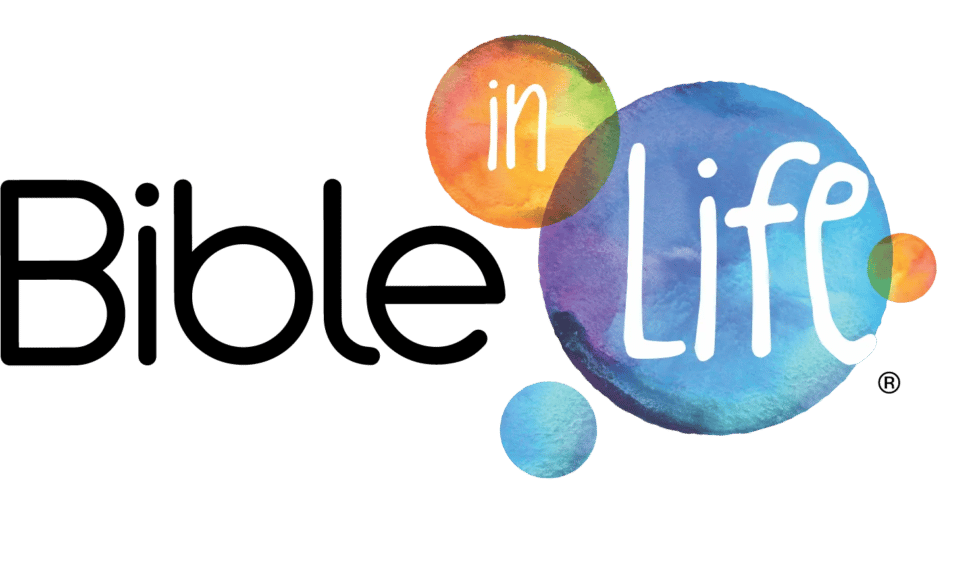Curriculum plays a huge role in every ministry, providing focus and consistency throughout classrooms and for all teachers. One feature of curriculum is life application, which holds particular significance when teaching kids.
Developmentally, children often struggle with abstract concepts, but showing them how to apply biblical concepts in real-life situations helps them grasp the concepts more fully by giving them real-life examples of following Jesus.
If we want to help kids gain an understanding of the Bible that leads to life change, our teaching approach and children’s ministry curriculum must incorporate life application.
What is life application?
Life application in children’s ministry refers to helping kids process the practical integration of biblical principles into their daily lives. It emphasizes the relevance of faith and helps kids understand and apply their faith to their life experiences.
Life application encourages children to respond to the Bible story by putting their faith into action, allowing God’s lessons from the Bible to influence their relationships, decision-making, and responses to challenges.
Jesus included life application in His teachings. Each of His parables teaches an important lesson using an everyday item or scenario. The parables explain theological truths and encourage listeners to apply those truths.
Ultimately, life application gives kids a call to action from the teaching, inviting them to practice their faith outside the four walls of the church.
If we want to help kids gain an understanding of the Bible that leads to life change, our teaching must incorporate life application.
Why does life application matter?
Children are much more receptive to teaching when it is applicable and obviously relevant. Kids want to know how what they are learning connects to the real world and how it applies to them in real life. Including life application in our teaching gives the learning process meaning for kids and equips them to develop a lifelong faith.
When children see how the Bible relates to their lives, they develop a personal connection with their faith. This connection promotes engagement, curiosity, and a desire to seek a deeper understanding of God’s Word.
Life application also equips children with tools to navigate life’s challenges and make wise decisions. It encourages critical thinking, problem-solving, and discernment, empowering children to apply biblical principles in practical ways. These skills prepare them to face the complexities of the world with confidence, resilience, and a solid foundation in their faith.
Teaching without life application leads to a transfer of knowledge but lacks true impact. Without life application, biblical teachings become another set of history facts for kids to memorize rather than a living relationship with their Creator that influences everything they do.
Teaching that includes life application fosters a lifelong faith by showing kids that God’s Word is relevant and applicable to their lives.
Bible In Life
With our 4-step lessons, teachers can focus on engaging kids, youth, and adults to discover God’s Word and bring it to life.


How do I equip volunteers and families to incorporate life application?
While you can include life application points in the overall teaching time, the best space for kids to explore life application is in places where they can work out their faith—like in small groups and at home.
One way to include life application in your teaching is to invite other real-life people into the teaching. This may look like volunteers who share their faith stories, other leaders within the church, guest speakers, or a FaceTime call with a missionary.
When kids see and hear about people living out their faith, they explore ways they can live out their faith in the context of school, home, sports, and more.
Teaching that includes life application fosters a lifelong faith by showing kids that God’s Word is relevant and applicable to their lives.
During small group time, train volunteers to invite questions, foster brainstorming discussions, and offer opportunities to role play. We must provide space for kids to explore the questions they have about their faith so we can help them discover the answers.
Asking questions allows kids to process and integrate their faith with their daily lives.
Having discussions where kids brainstorm ways to apply their faith in real-life situations also gives them an opportunity to process the lesson on a basic level and understand how it applies to them. Role-play games and scenarios provide kids a safe environment to experiment with putting their faith in action.
Leaders can provide resources and encouragement for parents to help them apply each Sunday’s lesson at home. Weekly text messages or social media posts with discussion questions for mealtimes or short examples of how to use various daily routines (bath time, brushing teeth, etc.) for a faith conversation are helpful resources.
By providing ways to invite kids and families to interact with Bible stories from Sunday mornings throughout the week, ministry leaders essentially enable families to “Talk about [the Bible] when [they] sit at home and when [they] walk along the road, when [they] lie down and when [they] get up.” (Deuteronomy 6:7 NIVTM).
Helping parents see that life application can happen in the mundane, routine moments removes some of the fear and intimidation parents may feel when thinking about discipling their kids.

Word of Caution
Sometimes an emphasis on life application can slip into a focus on behavior modification rather than heart transformation. In these circumstances, our choices and lives become the main focus of the lesson. That emphasis isn’t a bad thing, but it shouldn’t be the foundation of our teaching.
God must remain central every time.
We shouldn’t forfeit an emphasis on God’s role in the story in exchange for life application.
God must remain central every time.
For example, in the story about Jesus feeding the 5,000 in John 6:1-15, we can include a life application point about sharing what we have with others like the little boy who shared his lunch, but the main point of the story should focus on Jesus’ powerful miracle and how God provides even when a situation seems impossible.
Leaders can avoid this misdirection of attention by ensuring that the lesson invites kids to wonder, explore, and experiment with God’s role in the story just as much as discussing life application.
Ultimately, combining life application with opportunities to develop a personal relationship with God allows us to create learning experiences for kids that lead to lifelong faith.
Connecting the Bible to things kids experience and helping them see how to live out the lesson fosters ownership of their faith and resilience as they grow.

66 Short Bible Verses Perfect for Kids to Memorize

66 Short Bible Verses Perfect for Kids to Memorize











